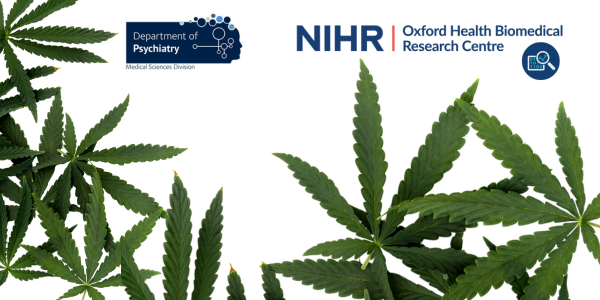
A new study has investigated whether cannabidiol (CBD), a non-intoxicating compound found in cannabis, can reduce the harmful effects of cannabis use in people with schizophrenia.
The study, “Does cannabidiol reduce the adverse effects of cannabis in schizophrenia? A randomised, double-blind, cross-over trial”, was published recently in Neuropsychopharmacology Journal.
The research involved our BRC Data Science Theme researchers Dr Dominic Oliver, postdoctoral researcher in the University of Oxford’s Department of Psychiatry, and Philip McGuire, Professor of Psychiatry in the Department of Psychiatry.
The study, which was supported by the Oxford Health Biomedical Research Centre (OH BRC), recruited 30 participants with a diagnosis of schizophrenia or schizoaffective disorder and a cannabis use disorder.
Participants were given either 1000mg of oral CBD or a placebo before inhaling cannabis containing THC, the main psychoactive component of cannabis. Researchers then assessed memory and psychotic symptoms using standard clinical tools.
The results showed that CBD pre-treatment did not reduce the memory impairment caused by THC in the cannabis. In fact, participants recalled fewer words in memory tests after taking CBD compared to placebo. Similarly, psychotic symptoms were worse after CBD pre-treatment.
These findings conflict with earlier studies suggesting that CBD might protect against the harmful effects of THC. The authors of the paper emphasise that more research is needed to understand how CBD interacts with cannabis in people with schizophrenia, and whether different doses or long-term treatment with CBD might produce different results.
This study highlights the complexity of using cannabis-based compounds in mental health treatment. While CBD has shown promise in treating psychosis, its role in managing cannabis-related harm in schizophrenia remains uncertain.
Dr Dominic Oliver said: “Our findings suggest that CBD can intensify the effects of THC in people with schizophrenia and cannabis use disorder.
“Despite these results, CBD remains a promising treatment across multiple stages of psychosis.
“In future trials, it is crucial that we compare the safety and effectiveness of CBD in patients with cannabis use disorder to those without to see the full picture.”
Contact us: ohbrcenquiries@oxfordhealth.nhs.uk



